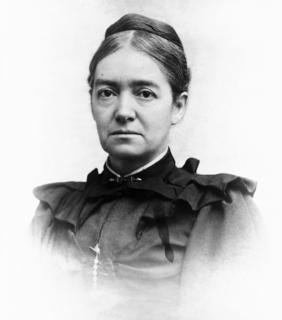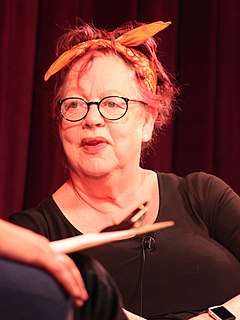A Quote by Mary Corinna Putnam Jacobi
... [the] special relation of women to children, in which the heart of the world has always felt there was something sacred, serves to impress upon women certain tendencies, to endow them with certain virtueswhich will render them of special value in public affairs.
Related Quotes
I know there are certain men that hate women or don't like women, and in order to make women feel small, they tend to isolate them when they bully them. And women are often humiliated by it and feel they can't do anything about it. So my advice to women would be: there's always support around for those sorts of things and if you feel you're isolated in any way, or being bullied, you must talk to someone about it.
An ethic of maternalism was central to the utopianism of 19th century feminists. I don't think that today's women see motherhood as a source of personal power, let alone political power. I don't think that women now have that same sense that their lives as mothers gives them any special power or virtue. I think women see their lives as mothers as an adjunct to their working lives - a fulfilling and important adjunct, to be sure - but something they do in addition to working in the public realm, not because being a wife and mother gives them a distinct edge in improving the world as we know it.
We are not held accountable for how the economy ravages Congo. Governments aren't held accountable for foreign policies that they exercise there. There are no institutional structures to render justice. The press is very limited. There's very little transparency. You find a symmetry in certain basic human tendencies, and these tendencies are not always noble or beautiful. I think we have an instinct to turn away from that, to not acknowledge it, while it is something that's a part of us. There's a certain tragic and sad side to human nature that, in our quest for beauty, we ignore.
The nature of women's oppression is unique: women are oppressed as women, regardless of class or race; some women have access to significant wealth, but that wealth does not signify power; women are to be found everywhere, but own or control no appreciable territory; women live with those who oppress them, sleep with them, have their children - we are tangled, hopelessly it seems, in the gut of the machinery and way of life which is ruinous to us.
If you look at most women's writing, women writers will describe women differently from the way male writers describe women. The details that go into a woman writer's description of a female character are, perhaps, a little more judgmental. They're looking for certain things, because they know what women do to look a certain way.
My choice of colors does not rest on any scientific theory; it is based on observation, on feeling, on the experience of my sensibility. Inspired by certain pages of Delacroix, an artist like Signac is preoccupied with complementary colors, and the theoretical knowledge of them will lead him to use a certain tone in a certain place. But I simply try to put down colors which render my sensation.
I ask myself a lot how other women can be against the ideology that has to do with women empowering other women. Going along with the access of power and the status quo and forging a special position and the thought process that goes: I am not like those women. When it comes to things like assault, for example, perhaps it makes them feel safer. It's the denial: I'm okay. This won't happen to me. Acknowledging that the world is a profoundly unsafe for women is a scary thought.





































